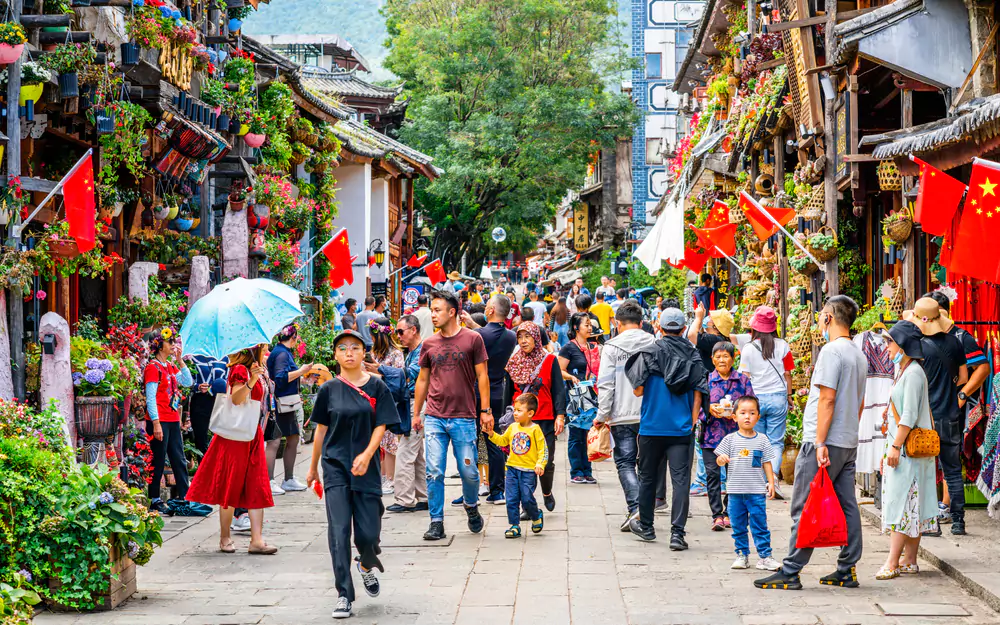China’s homebuying surge: Can new stimulus measures keep the market rally alive?
Stimulus measures have sparked a surge in homebuying activity around China, but many are sceptical the shift in momentum will endure

In recent weeks, city authorities across China have rushed to introduce more favourable terms for homebuyers.
At the end of September, Guangzhou lifted all restrictions on home purchases, while Shanghai and Shenzhen relaxed the country’s most restrictive curbs. According to the Party-run newspaper People’s Daily, a total of 60 cities across China introduced new home purchase subsidies in October. These cities included Jingmen, Changde, Yichang, and Dazhou. In Suzhou, downpayment requirements were lowered for first- and second-time homebuyers using loans, and Foshan announced plans to increase maximum mortgage limits.
Following a series of measures implemented by both the central government and local administrations, analysts report a rise in housing activity amid a prolonged real estate crisis. However, some experts argue that the recent policy adjustments from Beijing and city governments have not gone far enough.
In late September, President Xi Jinping led a Politburo meeting in Beijing to address various economic concerns, concluding with a mandate that the government “must work to halt the real estate market decline and foster stable economic recovery.”
Subsequent messaging in state media has highlighted these policy adjustments, linking them to a surge in homebuying activity around the Golden Week holiday in early October—a period when homebuyers traditionally visit housing projects in large numbers.
This initiative appears to be more about appearances than substance. A confidence deficit continues to weigh heavily on the housing sector
This wave of optimism was reflected in market performance, with several heavily indebted Chinese developers recording significant gains on the Hong Kong Stock Exchange. Shimao Group, for instance, saw a 97 percent increase on October 2, the second day of Golden Week. The Hang Seng Mainland Properties Index, which tracks Chinese property stocks listed in Hong Kong, climbed by 11.69 percent that day, marking its largest gain in over a year.
However, the market rally stalled two weeks later when the Chinese central government released additional details about its policy support measures for the housing sector. A CNY4 trillion (USD562 billion) loan fund for “whitelist,” or incomplete housing projects, was seen by some analysts as insufficient and as merely an extension of a policy initially announced in January.
“As with previous support rounds, this initiative appears to be more about appearances than substance,” says David Zhang, an analyst with Trivium, a Chinafocused policy and advisory consultancy. “A confidence deficit continues to weigh heavily on the housing sector.

Homebuyers and analysts are now watching to see whether further policy interventions will spark a sustainable market turnaround, as the crisis—initiated by the Covid-19 outbreak and the 2021 default of Evergrande Group—shows little sign of abating. Zhang says that his team anticipates a gradual expansion and extension of support measures over the coming year, with increased buyer demand crucial for developers and for China’s overall recovery from the slump. The National People’s Congress was set to convene in November, with additional housing market policies expected by yearend and early 2025.
Broader economic challenges are compounding the struggles of the housing market, each exerting downward pressure on the other. Stifled by these issues, China’s economy prompted the International Monetary Fund (IMF) to lower its GDP growth forecast to 4.8 percent for 2024, with a further reduction to 4.5 percent predicted for 2025. “Conditions for the real estate market could deteriorate further, with additional price corrections occurring amid contractions in sales and investment,” say the IMF.
The extent to which the housing market can sustain the recent Golden Week activity remains to be seen. Data from the China Index Academy indicated that Tier-1 cities experienced the most significant improvements in October, with Shenzhen posting a 6.76 percent drop in housing inventory—a crucial metric given the oversupply of available properties. “This could potentially signal a return of confidence,” says James Woo, co-head of valuations at Colliers in Beijing.
Mortgage rates may also provide a boost. In late October, major banks, including ICBC, Bank of Communications, and China Construction Bank, reduced mortgage rates by an average of 50 basis points, or half a percentage point. As a result, average mortgage rates have dropped to below 3.5 percent, the lowest recorded in China over the past 15 years. First-time buyers can access even lower rates, which, combined with reduced minimum down payments in many cities, has made home purchases theoretically more affordable.
“Improvements in loan-to-value ratios and lower mortgage rates have substantially boosted buyer confidence and market dynamics,” says James MacDonald, head of Savills China Research in Shanghai.
Despite these positive shifts, a fullscale housing market recovery remains challenging, especially when considering the entire country, MacDonald says.
“Some regions with stronger job markets, lower unsold inventory, and better overall conditions may stabilise and improve by 2025. However, other areas may require more time to fully recover,” he adds. “Fiscal measures are likely to accelerate the overall recovery, particularly in the better-performing markets.”
This article was originally published on asiarealestatesummit.com. Write to our editors at [email protected].
Recommended
Thailand’s real estate sector watches closely as the Shinawatras return to power
Time will tell if the return to power in Thailand of the Shinawatras will lift the country’s ailing real estate sector
China’s homebuying surge: Can new stimulus measures keep the market rally alive?
Stimulus measures have sparked a surge in homebuying activity around China, but many are sceptical the shift will endure
Meet the architect transforming Asia’s retail spaces with nature-inspired designs
David Buffonge, the cofounder of Hong Kong-based Lead8, has strong opinions on how to improve built environments around Asia
6 sights to check out in Siem Reap, Cambodia
Cambodia’s “temple town” is bolstering its touristfriendly attributes with new infrastructure and residential developments







